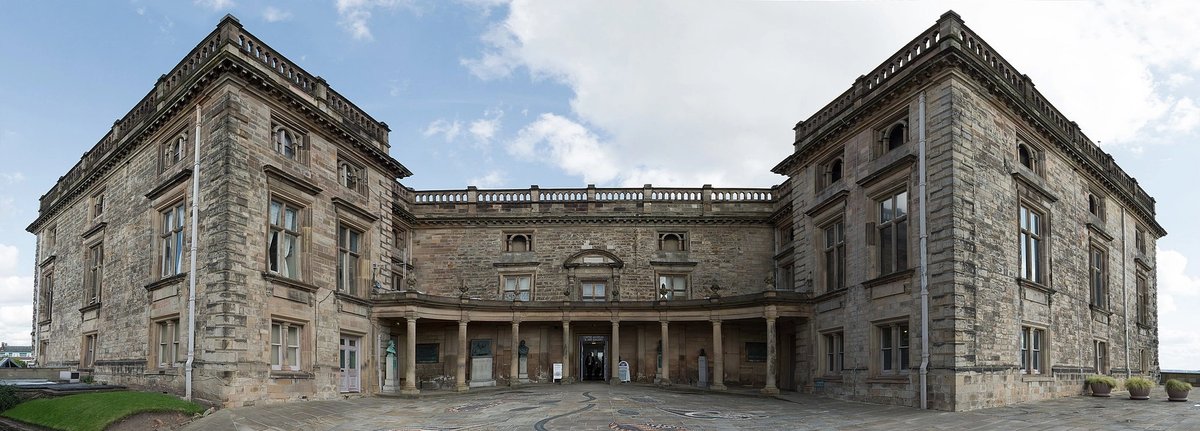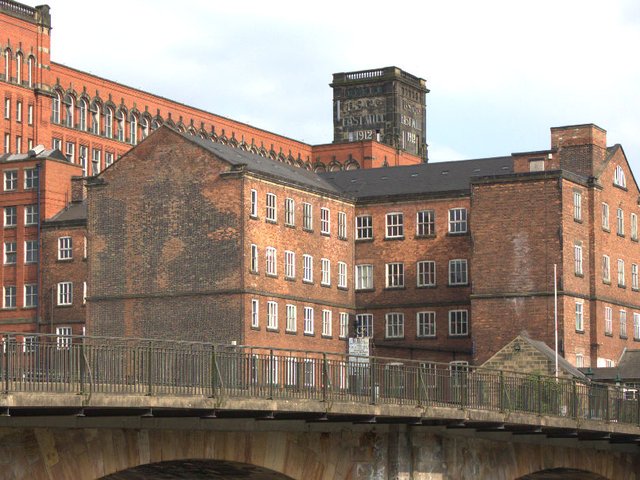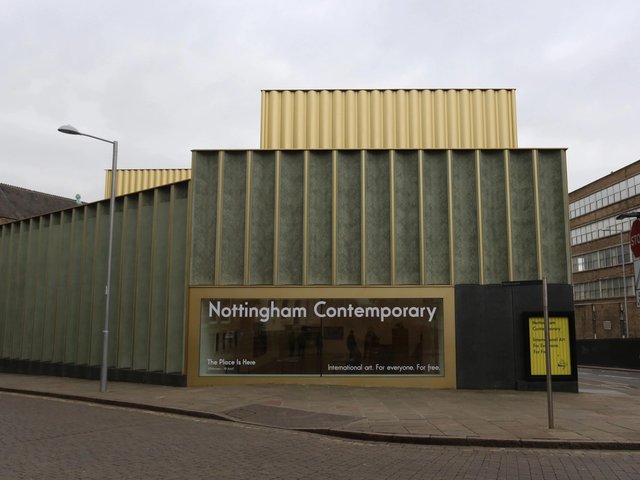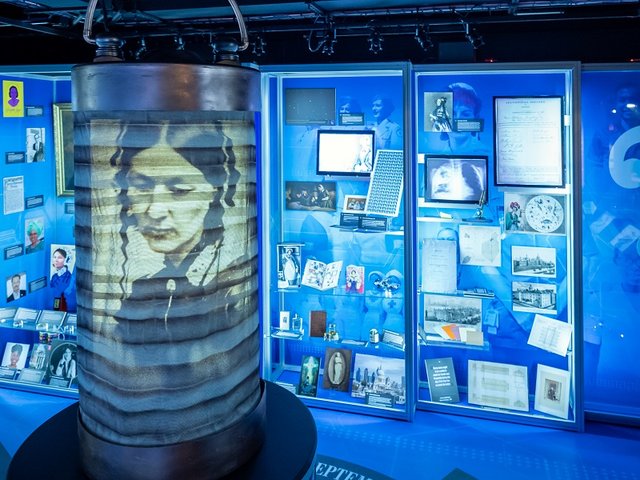Nottingham Castle has become the UK’s latest major heritage attraction to close its doors to the public, a year after it received £33m in restoration funds from the public purse.
Following the announcement, Sara Blair-Manning, the former chief executive officer of Nottingham Castle, has called on the local council to launch an independent investigation into the reasons behind the castle's closure.
Blair-Manning left her role in August 2021 before pursuing a tribunal citing unfair dismissal. Commenting on the closure, Blair-Manning told local media: "Sadly, this does not surprise me. In July 2021 I raised concerns about the board of trustees’ poor standards of governance and lack of appropriate expertise and experience. I hope Nottingham City Council will not duck their responsibility to establish an independent investigation of what went wrong."
The Norman castle sits on Castle Rock and is visible throughout the city of Nottingham. It dates back to the 11th century and is a central location in the Nottinghamshire legend of Robin Hood after the castle was seized by the usurper Prince John from the absent Richard the Lionheart. The castle first opened to the public in 1878.
But the castle will now be completely closed to the public for the first time after its governing trust went into liquidation, a year after £33m in funds was pledged from sources including Nottingham city council, Arts Council England and a 12.9m grant from the Heritage Lottery Fund for a three-year regeneration project.
In a statement published on Monday, Pavlos Kotsonis, Nottingham Council's portfolio holder for leisure, culture and planning, said: "It is a matter of huge disappointment. This is clearly a significant blow to the city and its visitor economy."
In a separate statement, officials from the Nottingham Castle Trust said they were “saddened and hugely disappointed” to be closing. The trust also said low visitor numbers were responsible for the castle’s closure. The number of people visiting the castle were “significantly below forecasts,” the Trust said.
The trust had set a target of 400,000 visitors each year. But, in the seven months after reopening in June 2021, internal data found around 100,000 people visited—around one third of the numbers forecasted.
The trust said in a statement: "In line with heritage organisations and attractions across the UK, Nottingham Castle experienced a particularly tough summer that has negatively impacted expected funding streams. The immense challenges posed by the pandemic, the financial crisis and the three-fold rise in energy costs meant that this charitable trust model was no longer workable, and the trust was simply not able to evolve quickly enough to survive the ongoing economic crisis as it enters its quietest trading period of the year.”
The closure comes shortly after the castle came under the direct control of Nottingham City Council after the managing trust became embroiled in a series of controversies and allegations relating to internal working conditions and unaffordable admission costs.
After reopening, the castle charged £13 for a standard entry fee, with additional costs for access to other parts of the heritage site. The Nottingham City Councillor Andrew Rule said in a council meeting that the trust was at risk of “pricing out” local visitors. Rule said the trust should “ensure residents have the opportunity to visit [the castle] on an affordable basis”. The trust was ultimately forced to review its prices.
Management of the castle was also marred by a series of internal management issues that made local headlines. Blair-Manning left her role in August 2021 before taking the trust to an employment tribunal, claiming she was unfairly dismissed. She made allegations of “bullying, harassment and inappropriate behaviour” within the management culture at the castle. The trust strongly denies all allegations.
Blair-Manning was replaced with Robin Bischert, but the new chief executive announced he would also depart in December 2021, just a few months into the role. A series of senior employees at the castle also departed in the same period.
In addition, in November 2021, seven current and former employees of Nottingham Castle published an open letter to the trust making claims of an "environment of fear”.
The letter followed a racism allegation from a former employee of the trust, the freelance curator Panya Banjoko, who said her grandchildren were racially abused by another child at the site’s playground while she was employed by the trust, which the police recorded as a hate incident. The allegation wasn’t properly investigated, Banjoko said. In August of this year, the group Stand Up to Racism staged a protest in the castle grounds in support of Banjoko, 12 months after the incident first took place.
The Charity Commission found no wrongdoing on behalf of the castle. But an independent investigation into the incident, published in March 2022, found that there was a paucity of training in safeguarding policy around racism at Nottingham Castle Trust. The trust has disputed the claims about its organisational culture, and has said it was in the process of developing a detailed policy in response to the August 2021 incident.
Following the comments from Ms Blair-Manning, a Nottingham City Council spokesperson said: "Sara Blair-Manning, the former Chief Executive of the Castle, is involved in an ongoing claim for unfair dismissal by the Trust. Therefore it would not be appropriate for the council to comment in detail at this time on the issues she has raised in regard to this matter."
In response to the news, the British art historian and The Art Newspaper columnist Bendor Grosvenor tweeted: “Terrible news that Nottingham Castle Trust, home to Nottingham's impressive art collection, is to close. Just one year after a £30m plus renovation. We're now at a serious crisis point for the UK's regional museums.”
In October, the director-general of National Galleries of Scotland warned the country's most historic art institutions will face partial closure without support. In Cumbria, the Merz Barn, the former studio of the German artist Kurt Schwitters, will be sold for commercial development after public funding was refused, it has emerged. Other museums and heritage sites across the country appear to be under threat. Gladstone Pottery Museum in Stoke has announced it will not open to the public until April 2023, while the future of the Bury Arts Museum, a Grade II listed building in need of major repairs, is to be debated by the local council, which faces cuts of £29m.
Liquidators have now been called in to preside over Nottingham Castle’s finances. Councillor Kotsonis attempted to strike a note of hope in his statement. ”There is a real commitment from all parties to see this important cultural asset fulfil its full potential for the city and the wider region as a successful visitor attraction,” he said. Given the economic environment that directors working in the UK's heritage sector collectively face, it remains to be seen how this will come to pass.





